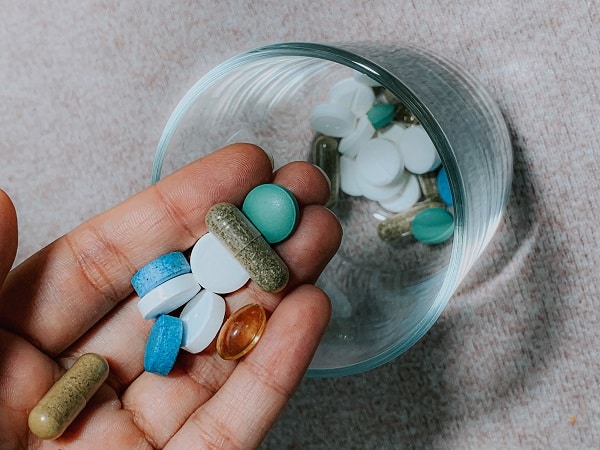Energy drinks have surged in popularity, touted as a quick solution for boosting energy and improving focus. Marketed primarily to young adults and athletes, these beverages often promise enhanced performance and concentration. However, beneath the appealing marketing lies a range of potential health risks, many of which are not immediately apparent to the average consumer. This article delves into the less-discussed dangers of energy drinks, exploring the hidden health impacts that can arise from their regular consumption.
Contents
May Cause Dehydration

Energy drinks are often consumed in the belief that they’ll offer a quick energy boost, but one of their lesser-known effects is dehydration. The high caffeine content, a diuretic, encourages the body to lose fluids at a faster rate. This loss of fluids, coupled with the typically high sugar levels in these drinks, can significantly impair the body’s hydration balance, particularly during intense physical activity or in hot climates. The risk is especially high for athletes who might use these drinks to enhance performance, as dehydration can lead to decreased physical capability and increased risk of heat-related illnesses.
The symptoms of dehydration include dizziness, headache, and fatigue – ironically, conditions that energy drinks promise to alleviate. Chronic dehydration can lead to more severe health issues like kidney stones, urinary tract infections, and in extreme cases, kidney failure. The paradox is stark: while seeking an immediate energy boost, consumers might be unknowingly compromising their body’s hydration, leading to a cycle of dependence on these drinks to combat the very symptoms they induce.
Can Lead To Caffeine Overdose

The allure of energy drinks often lies in their high caffeine content. However, this can also be their greatest risk. Caffeine overdose is a serious health risk associated with these drinks, particularly as they often contain caffeine levels much higher than those found in coffee or tea. Symptoms of caffeine overdose include palpitations, high blood pressure, nausea, and in severe cases, convulsions or heart arrhythmias. The danger is amplified when energy drinks are consumed in large quantities or mixed with alcohol or other stimulants.
Understanding the caffeine content in energy drinks is crucial for safe consumption. Many consumers are unaware of the caffeine content in a single can and may unknowingly consume multiple servings in a short period. This is particularly concerning for individuals with pre-existing heart conditions or sensitivity to caffeine. The lack of regulatory standards in labeling and portion sizes further complicates the issue, making it difficult for consumers to make informed choices about their caffeine intake.
Potential For Heart Problems

The impact of energy drinks on heart health is a growing concern among health professionals. The combination of high caffeine and sugar levels, along with other stimulants commonly found in these drinks, can lead to an increased heart rate and higher blood pressure. These effects can be particularly dangerous for individuals with underlying heart conditions, potentially leading to more serious cardiovascular events like heart attacks or arrhythmias.
Recent studies and case reports have begun to shed light on the link between energy drink consumption and heart problems. In some instances, even healthy individuals without known heart conditions have experienced adverse cardiac events after consuming energy drinks. This risk is compounded when these beverages are used in conjunction with physical exercise or other stressors on the body. The concern is not just limited to those with pre-existing conditions; it extends to the general population, particularly young adults who are the main consumers of these products.
May Impact Mental Health

The consumption of energy drinks can have significant implications for mental health. These beverages, high in caffeine and sugar, can exacerbate conditions like anxiety and insomnia. For individuals already prone to these issues, the stimulants in energy drinks can trigger or worsen symptoms. The temporary boost in alertness and mood can quickly shift to increased nervousness, restlessness, and in some cases, panic attacks.
The long-term effects on mental health, especially in younger consumers, are concerning. Regular intake of energy drinks can disrupt sleep patterns, leading to chronic insomnia and associated cognitive impairments like reduced concentration and memory issues. Moreover, the fluctuating energy levels and mood swings caused by the high sugar content can have a destabilizing effect on mental well-being. These factors highlight the importance of considering the psychological impacts alongside the physical health risks of energy drinks.
Negative Interaction With Medications

Energy drinks can interact negatively with certain medications, amplifying their effects or reducing their efficacy. The high levels of caffeine and other stimulants can interfere with medications for heart conditions, anxiety, depression, and more. These interactions can lead to unexpected and sometimes dangerous side effects, such as increased heart rate, blood pressure, and heightened anxiety levels.
It is essential for individuals to be aware of these potential interactions and consult healthcare providers before consuming energy drinks, especially if they are on medication. This precaution is often overlooked due to the perception of energy drinks as harmless. However, understanding and respecting the powerful substances they contain is critical for maintaining health and avoiding adverse reactions.
Unregulated Ingredient Dangers

The energy drink industry suffers from a lack of regulation, particularly regarding ingredient disclosure. Many energy drinks contain unlisted or poorly understood ingredients, whose effects on health are not well-documented. This lack of transparency can lead consumers to unknowingly ingest substances that may have adverse health effects.
The dangers of these unregulated ingredients are real and varied. From artificial sweeteners to herbal extracts, the potential for adverse reactions, allergic responses, and long-term health effects is significant. This issue is further compounded by the marketing of these drinks as dietary supplements, which are subject to far less stringent regulatory oversight than food or pharmaceutical products. The implications of this lax regulation are far-reaching, affecting consumer safety and public health.
The Bottom Line
In conclusion, the hidden dangers of energy drinks are multifaceted and significant. These beverages, often perceived as harmless energy boosters, can have serious health implications ranging from dehydration and caffeine overdose to mental health issues and potential heart problems. The risks are exacerbated by the industry’s lack of regulation, leading to the presence of unlisted and potentially harmful ingredients. Consumers need to be informed about these risks and consider them when choosing to consume energy drinks. As the popularity of these drinks continues to rise, especially among younger demographics, understanding and addressing these health concerns becomes increasingly important.


